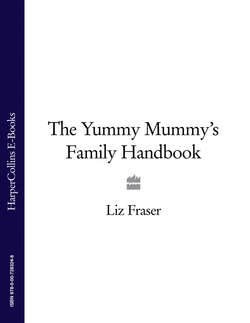Читать книгу The Yummy Mummy’s Family Handbook - Liz Fraser - Страница 62
The Food Wars
ОглавлениеThere is a deeply rooted instinct in all parents, and I think possibly more so in mothers because we can breastfeed, to want to feed our children. Whether they are particularly hungry or not, whether they are clearly well-nourished or even overfed, we want them to eat: to nurture them, make them grow stronger and healthier and become better able to fend for themselves when they finally leave us alone to enjoy some uninterrupted gardening and jazz music. Or whatever we will do when we are bored, middle-aged and undersexed.
Children know this. They know it from birth, and, because they are cleverer than a very sly fox, they also know that this gives them a colossal amount of power over us. We want them to eat, so by refusing to eat they are causing us much anguish and pain.
Mothers are constantly telling other mothers how well their babies eat, how fast they are growing and how they physically cannot produce enough milk to satisfy the needs of their calciumguzzling balls of baby-fat. This continues throughout the early years, and on into school, where the tallest, strongest-looking children are consistently praised for being so tall and strong-looking. You rarely hear, ‘Hello darling—my, you’re looking so pasty and small today’, do you?
Children who refuse food are often doing no more than playing a power game with you, and going into battle with large helpings of filling food will almost certainly backfire. Much better to try and think of why this stand-off has occurred in the first place. (Are you still giving him enough attention? Is there some bullying happening at nursery or school? Does he really, really want the Power Ranger you have said no to?) Chances are if you play it cool and don’t make a big issue out of it, he will soon tire of trying to annoy you, and start eating normally.
